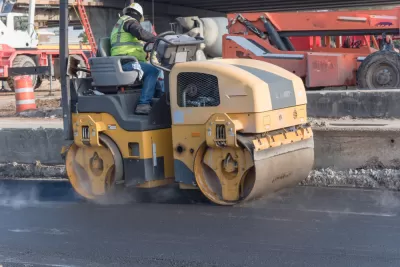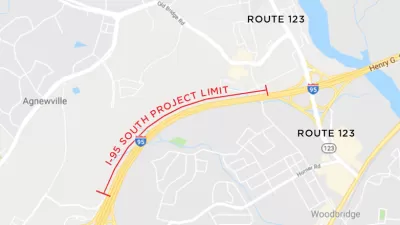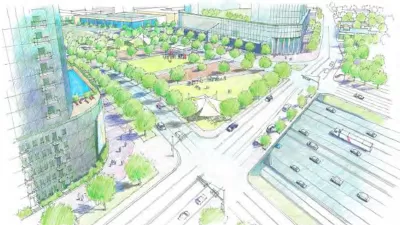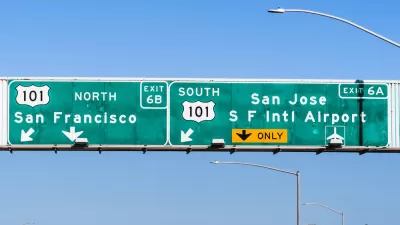Construction is expected to begin on the Southeast Connector highway widening project near Fort Worth in the spring and wrap up in 2027.

The Texas Department of Transportation (TxDOT) will soon begin construction on the $1.6 billion Southeast Connector, one of the state’s largest-ever investments in transportation infrastructure. The project is intended to ease congestion and improve transportation in Tarrant County on a stretch of highway that sees about 200,000 vehicle trips a day—a number that is expected to increase to 370,000 vehicles a day by 2045.
The project will expand roughly 11 miles of Interstate 20—through Fort Worth, Arlington, Forest Hill, and Kennedale—according to an article by Sarah Bahari for the Dallas Morning News. The widening will vary by location: A stretch from I-820 to U.S. 287 will expand from eight to 10 lanes, according to Bahari. "And Interstate 820, a loop around Fort Worth, will double in capacity, from four to eight lanes."
“As part of the project, the I-20, I-820 and U.S. 287 interchanges will be rebuilt, left exits and entrance ramps will be eliminated and turnarounds will be added at all cross streets,” reports Bahari.
“These improvements will facilitate trade, increase safety and improve efficiency for North Texas,” according to a TxDOT source cited in the article.
While some states, notably Colorado and also including California, have begun to reprioritize transportation investments away from more greenhouse-gas-emissions-causing infrastructure, TxDOT is moving forward with multiple, massive highways projects, including in Austin, Houston, and another project near Fort Worth. TxDOT produced a Finding of No Significant Impact for the final Environmental Assessment published in September 2020. Texas is far from the only state committed to GHG emissions, however. Rhode Island, Maryland, Michigan, and Oregon have also made the Planetizen newsfeed in 2022 for highway widening projects.
Setting side GHG emissions, Texas is also home to one of the nation’s most infamous examples of induced demand and the futility of expanding freeway to reduce traffic congestion—the Katy Freeway in Houston. Still, Texas is deeply committed to widening roads as a response to congestion. The Southeast Connector is part of TxDOT’s “Texas Clear Lanes” congestion reduction program.
FULL STORY: One of Dallas-Fort Worth’s most congested highways will get a major overhaul

Planetizen Federal Action Tracker
A weekly monitor of how Trump’s orders and actions are impacting planners and planning in America.

Map: Where Senate Republicans Want to Sell Your Public Lands
For public land advocates, the Senate Republicans’ proposal to sell millions of acres of public land in the West is “the biggest fight of their careers.”

Restaurant Patios Were a Pandemic Win — Why Were They so Hard to Keep?
Social distancing requirements and changes in travel patterns prompted cities to pilot new uses for street and sidewalk space. Then it got complicated.

Albuquerque Route 66 Motels Become Affordable Housing
A $4 million city fund is incentivizing developers to breathe new life into derelict midcentury motels.

DC Area County Eliminates Bus Fares
Montgomery County joins a growing trend of making transit free.

Platform Pilsner: Vancouver Transit Agency Releases... a Beer?
TransLink will receive a portion of every sale of the four-pack.
Urban Design for Planners 1: Software Tools
This six-course series explores essential urban design concepts using open source software and equips planners with the tools they need to participate fully in the urban design process.
Planning for Universal Design
Learn the tools for implementing Universal Design in planning regulations.
Heyer Gruel & Associates PA
JM Goldson LLC
Custer County Colorado
City of Camden Redevelopment Agency
City of Astoria
Transportation Research & Education Center (TREC) at Portland State University
Camden Redevelopment Agency
City of Claremont
Municipality of Princeton (NJ)





























